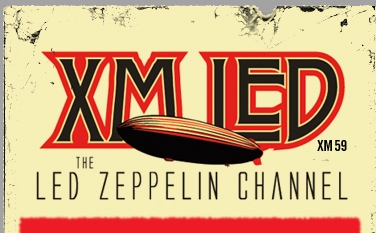
The news embargo on Hulu has lifted, so a bunch of tech journalists who haven’t actually used the service are posting pre-reviews of the fledgling video site based on demos NBC showed them and some press releases.
Kara Swisher, for example, who has been deservedly critical of the service, now says that:
From a demo (here are some screen shots of pages) I was given Friday by Hulu CEO Jason Kilar, the boyish former Amazon exec who seems to have learned to swim well with the Hollywood sharks, I am impressed thus far.
I will, of course, reserve judgment until I get to test-drive it for a while, but in concept and tone and aims–that is, more open than I ever expected the service to be–it is off to a good start. (Actual reviews of these sites I will leave to Walt Mossberg.)
If you’ve forgotten what Hulu is, other than another stupid quasi-Hawaiian name reminiscent of Mahalo, recall that NBC got irritated with Apple for its pricing inflexibility (it now appears that NBC wanted to charge $2.99 per episode for Heroes to see what would happen, and Apple said no thanks, competition should drive prices down, not up), and teamed with Fox to form Hulu, which will offer streams of current TV programming and some movies. It thus is an attempt to compete with (a) the iTunes Music Store per-episode download service, (b) YouTube, (c) illegal BitTorrent downloads, (d) the network’s own websites, (e) Amazon’s Unbox and other movie download services, (f) DVRs, (g) DVD sets and a bunch of other stuff besides. In reality, the big dogs are YouTube and iTMS. Hulu will offer a dozen movies to start and the most recent five episodes of current network programs (delayed by at least a day to protect their original airings and give you a chance to skip the ads on your TiVo box). It will be an ad-supported service, but the precise nature of the ads is up in the air. Given that this is NBC, expect at least some ads to be in-stream and unskippable. They just can’t help themselves.
The service hasn’t even launched yet, but the restrictions seem clear (despite what Kara says, it is not open, at least not compared to other non-Hollywood offerings). No user-generated content (no big loss, in my opinion), no downloads, no desktop player, no mobile access, no real-time or close to real-time access, no proper archive of content. You get five episodes of Heroes, which you can watch in a Flash player via a browser or embed in a website so other people can stream it in a Flash player via a browser. You’ll be able to recommend clips or make quasi-mashup highlight reels.
The TV networks are sitting on a treasure trove of content, but they’re just too paranoid to release it into the wilds of the internet. Just think of what Hulu could be if the networks grabbed that brass ring:
- The archive.org of the TV generation. Sixty years or more of programming, available on demand. Want to see the Vitameatavegamin episode of I Love Lucy? Stream it on demand, or download it for a buck or two. Stick some ads in the free stream or plaster them on the website to get cash for the non-downloaded content.
- Mashup central. People love best-of clipfests – where would VH1 be without the commentary-laden clipfest? Release downloadable clips of content and let people mash them, combine them, snark all over them. Then let them upload their creations to Hulu, highlight the best of the bunch. If they’re really good, stick them on real TV and come full circle.
- Compete with the iTMS. This means really compete, offer-an-alternative-like-Amazon compete. iTMS shows are laden with DRM, play only on Apple TV, iPhone or an iPod and cost too much. Provide DRM-free downloads for a buck that can play on anything that plays video, or offer Hi-def downloads for a reasonable price increase. Get creative with pricing, but that doesn’t just mean “charge more for popular stuff.”
- Replace the DVR and/or DVD box set. This is covered above in a way, but offer a high-quality stream in real-time. That way, I can start watching Heroes at 8:12 on a Monday if I don’t get home in time. Include ads if you want, but let me skip them. It has to be no worse an experience than I get by paying 10 bucks a month to Comcast. You can also bypass the plastic discs for catching up on past seasons. I caught on to Friday Night Lights late and bought the DVD set. Why? Let me download season one and watch it on the PC or stream to the TV via a media server. I don’t need the discs and won’t have time for the extra features.
Hulu, of course, does none of these things. NBC and its partners are too afraid of cannibalizing other channels, too afraid of alienating advertisers, too afraid of P2P and BitTorrent and the internet. Hulu could kill the iTMS, but this version of Hulu won’t. I generally agree with Marshall Kilpatrick:
No user generated content (not even best-of), no desktop player or download of material (it’s all in a Flash player) and very little viewer interaction is enabled. Viewers are allowed to select which section of the precious Hollywood content they are most in love with, that section or the whole video can then be shared with a friend or embedded on a website. This is just a multi-partner content deal with paltry technology behind it and a whole lot of money for marketing. Nothing innovative to get excited about.
Marshall wants social elements, too, but I’m a misanthrope who doesn’t care to be your friend on Facebook or otherwise, so making the solo viewing experience first-class is more important. But Hulu isn’t social, isn’t first-class, and won’t shake anything up. It’s just another half-baked service with a lot of marketing and a stupid name.


